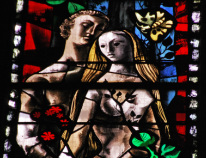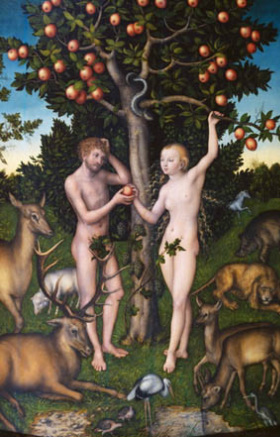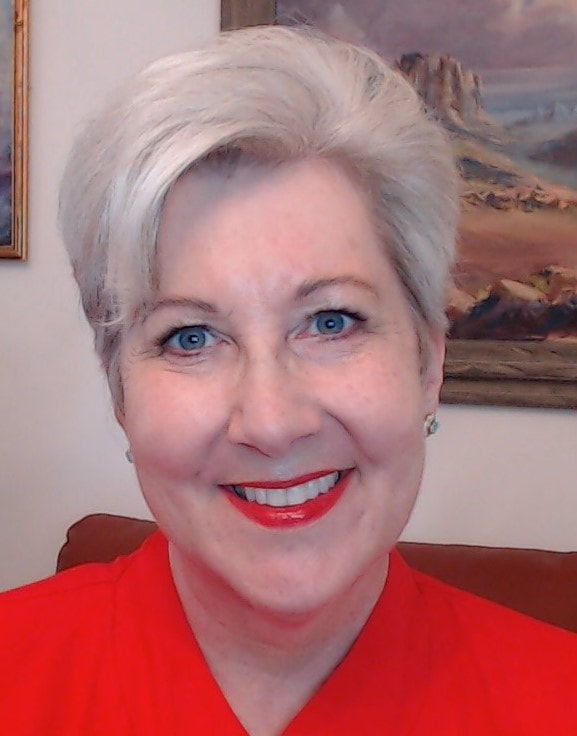|
7/12/2014 The patient's role in healing A colleague shared something her Christian Science teacher once said: “You can’t have ‘Heal me, but don’t change me.'” Science and Health with Key to the Scriptures explains, "The effect of this Science is to stir the human mind to a change of base, on which it may yield to the harmony of the divine Mind." (Mary Baker Eddy, 162) As a patient gives consent to what God as the divine Mind is doing for him, things change. While a patient may tend to watch the body, or what he perceives to be his problem, for signs of improvement, this isn’t the only place where change is happening. Working together through prayer, practitioner and patient become witnesses together of the power of the Christ to produce/reveal harmony in human minds and bodies. In Christian Science treatment, change is a normal response and should be expected. But sometimes in the process of change things may look and feel a bit messy. Christian Science uses the term "chemicalisation" to describe "the process which mortal mind and body undergo in the change of belief from a material to a spiritual basis." (Science and Health, 169) Have you ever set about cleaning a cupboard by dumping out all of the contents on the counter? Were you to stop too soon and judge your progress by the mess, you might lose the vision of what you are trying to accomplish, get discouraged, and shove all the junk back in the cupboard to be dealt with later, or maybe not at all. Let’s say you told a friend about your cleaning project and enlisted her help. She may not be able to decide for you what to keep and what to throw out as useless, outdated, irrelevant or just WRONG, but she could help you keep your vision clear, encourage you to keep going and not be distracted by the short term mess. She might ask you to think about whether the things you are hanging onto are useful, beneficial and a blessing. She might remind you that it was courageous to start the project and that the same courage that got you started to clean up the messy cupboard would support you as you sorted things out. So now, let's say the case isn’t a cupboard, but is a physical problem generating some fear. And the friend you call is a practitioner that you invite to help you through her prayers. The practitioner would pray to witness to your spiritual perfection – that you are, in Jesus’ words, “perfect as the Father is perfect” as the image and likeness of God. Through her silent or audible mental treatment she would not and should not make human decisions for you relating to your care, but she would systematically cast out useless, outdated, irrelevant and just plain wrong fears that pull you down into disease. From the mount of spiritual vision she would see you out of the mess. She might even tell you what she sees about you, reminding you silently and sometimes audibly that you can see it, too. Christian Science healers are engaged to give Christian encouragement, to express patience and remove fear, and to inspire and help their patients with “legitimate Christian Science, aflame with divine Love.” (Science and Health, 367)  You, as the patient, would have a role to play, too – that is, to consent to the treatment and to the change of base that it produces. This doesn’t just happen at the point of asking for prayer. Sometimes, as patients, we need to give consent DURING treatment to what a practitioner is seeing, saying and knowing about our case. Just as we may invite a friend into our house, we may invite a practitioner into our mental house to help us sort things out, but it is still OUR house. Decisions are made there that are ours – alone with God – to make. I called a practitioner for help one day because I was sinking under a problem. I just wanted out. She asked me a question and gave me a little homework, something to think about while she prayed for me. I got off the phone and blew up. Was she kidding me? I was already sinking and now I had to do THIS on top? Fuming and ruminating, I didn’t do it at first. Then a thought interrupted the fuss, suggesting that were I to look at my case the way the practitioner did, I might not feel so lousy and burdened. So I did the little homework she had given me, and in so doing I changed the base of my thinking from the problem to the spiritual solution at hand. I was quickly healed.. In short: The practitioner prayed. She gave me something to consider and do for myself. I consented to change my base of thinking as I did the little homework. And I was healed. There is a passage in Yvonne Fettweiss's and Robert Warnack's book Mary Baker Eddy: Christian Healer that is oft-quoted as though it is the final word for all things relating to the responsibility of practitioners and patients in treatment. “When a student doesn’t heal, it’s his own fault. I am out of patience at hearing a student ask his patient to work when the patient is up to his ears in the waves. Don’t ask anything of your patient. Show him your Science and when he is healed he will work.” (Said to pupils during an 1889 class, page 151)  These comments are sometimes cited to prove that a patient has nothing and a practitioner has all to do in the work of healing. But as Jesus’ own example shows us, that isn’t necessarily true. Of his recorded healings we see that sometimes he made demands on his patients and sometimes he didn't. Sometimes he spoke to them at length and sometimes he didn't. Sometimes he expected things of them before, sometimes after, and often not at all. In other words, his approach adapted according to the needs of the case. So did Mary Baker Eddy’s. She wrote letters and made statements, such as that oft-quoted one, to individual practitioners and certain groups of pupils, speaking to their specific need and the needs of their cases. Would these comments apply to some others, also? Of course, they would. But at other times she addressed similar situations in different ways. This is why having access to her many counsels is so good for us. We have lots of good guidance to help us find our way in healing. Here are some other examples showing how she herself dealt with the sick: “Take the First Commandment for your medicine-it cures all disease.” (Written to Septimus Hanna in 1897, L05195) “Now rouse yourself to know that you are not living in the body but in God, in Spirit, in the good you do and are; Then you get out of the belief of health into the understanding of health, and are out – and out through Science, not suffering. Keep your thoughts away from me and grounded on divine Principle, not on a person.” (A letter to John Lathrop in 1903, L04262)  The chapter titled, "Interlude: Advice for Healers" in Mary Baker Eddy: Christian Healer has loads of comments on the healing practice. They illustrate a variety of approaches to working with patients - sometimes engaging them, and sometimes not, in the work. We need to exercise wisdom and discernment to know which insights relate most directly to our present cases. When it comes to private correspondence and conversations, however inspired they may have been to meet the demand of the hour, what applies to one does not necessarily apply to all. What is written in Science and Health with Key to the Scriptures, however, does apply to all of us. Mrs. Eddy wrote the Christian Science textbook as a scribe under orders from God. Science and Health underwent assiduous scrutiny, refinement of vocabulary and perfecting of content, - to a much higher degree than any other of her writings. She asked practitioners to place Science and Health in the hands of all their patients. Patients, therefore, shouldn't be surprised if a practitioner encourages them to open it and see what it says to them. A Christian Scientist requires my work Science and Health for his textbook, and so do all his students and patients. SCIENCE AND HEALTH, 456 The wise Christian Scientist will commend students and patients to the teachings of this book, and the healing efficacy thereof, rather than try to centre their interest on himself. RETROSPECTION AND INTROSPECTION, 83 For the word of God is quick, and powerful, and sharper than any two-edged sword, piercing even to the dividing asunder of soul and spirit, and of the joints and marrow, and is a discerner of the thoughts and intents of the heart. HEBREWS 4:12 Not a subscriber and want to be?
It's easy! Just sign up in the sidebar. You may also wish to: VISIT MY WEBSITE HOME PAGE FIND LINKS TO MY OTHER PUBLISHED CONTENT LISTEN TO A COLLECTION OF MY "YOUR DAILY LIFT" 2-MINUTE PODCASTS  A blog reader sent me the link to this 10 minute sermon given last Sunday by Nadia Bolz-Weber at her church, House for All Sinners and Saints, in Denver, Colorado, where she is the founding pastor. She makes some really helpful points, so I am passing it along to you as the Prayer MOJO post for this week. I recommend that you listen to, rather than read, her message, because preaching is a spoken art form. To hear her sermon, be sure your speakers are on, and click the button: If you prefer to read the sermon, the following is the intro. A link at the end will take you to her full text.  "A couple hours ago on Facebook, Catherine posted that she had just seen a snake on her hike. As her pastor I thought it best to reply, “If it starts talking, don’t listen.” "This likely came to mind since I was editing this very sermon about Adam and Eve. The story of the Garden of Eden is what is called an origin story and every culture has theirs. Origin stories tell us how the world came about and where we came from and other important things like why snakes don’t have legs. We think we might know our origin story really well, but in the Genesis account of the Garden of Eden, there actually is no mention of sin, or a fall, or Satan, or temptation, and I hate to break it to you but there wasn’t even an apple involved. Which means the cultural understanding of the story of the Garden of Eden is slightly corrupted. This is due in part to the countless paintings throughout the history of Western art which for some reason portray a tree and a snake and an extremely white Adam and Eve holding a Red Delicious. "See, for generations folks have called the tale of Adam and Eve and the serpent and the forbidden fruit “The Fall from grace” or “The story of Original Sin." "That's a little weird to me. Like, God created the heavens and the Earth and animals and it was like, this awesome all-inclusive primeval club-med for Adam and Eve – they ran naked through the warm sunlight of an idyllic paradise and everything was theirs for the taking – except for that one tree that they were told to steer clear of. And this absolute paradise in the garden between God and Humanity lasted approximately 20 minutes. Until Eve had a chat with a talking snake and then disobeyed God and ate the forbidden fruit. And because Eve, ate some fruit she was told not to, now all of humanity is cursed and this so-called original sin of Eve’s became sort of like a sexually transmitted disease.  "Because now, according to this version of what the story is about, every person born after that inherited original sin from Eve. That’s right. Eve messed it up for everyone by eating some piece of fruit God told her not to. Which feels kinda unfair to her and kinda unfair to us. But this is what we are told the story is about. "See, religion has taught many of us that the story of Adam and Eve is a story primarily about their disobedience. And that the fracture in the relationship between God and humanity is caused by us breaking God’s arbitrary little rules. So it feels like maybe religion was established just so we could be certain about what rules we need to follow in order for our relationship with God to be a loving, peaceful one. "But this week, after reflecting on several conversations I’ve had with many of you about your lives and identities and the struggles we all have to hear the truth of who we are, well, I started to wonder if the real damage to the relationship between Adam and Eve and God wasn’t the rule breaking nearly as much as it was in allowing themselves to believe lies about themselves and God. See, the serpent lied to them about who they were and who God was and like all the most dangerous lies, these lies the serpent told were just close enough to the truth to be really destructive...." Find full sermon. You wouldn't believe how far your appreciation goes when shared.
If you like what you see in this blog, please pass it along to your friends, fans and followers. Every "like", tweet and share touches many, many people. A full-text version of the blog can be delivered to your email inbox. Please subscribe in the sidebar. You may also wish to: VISIT MY WEBSITE HOME PAGE READ MORE BLOG POSTS FIND A LIST OF MY OTHER PUBLISHED CONTENT 11/25/2011 Decisions: What are we relying on? _Choices. We make them all the time. From deciding to wear a shirt color that brings in the compliments, to choosing to leave for work early enough to avoid morning traffic - our decisions impact outcomes everyday. Of course, choice-fatigue can lead to an "I don't care" attitude that disengages from making decisions. This can run the spectrum between avoidance of choice - "You decide for me" - to making a fixed and final choice that shuts down any growth or thinking on the subject - "I will decide once and for all so I don't have to think about it ever again." But there are certain subjects that naturally require constant engaging and thinking and choosing and growing. I believe that our relationship with and reliance on God to meet our human needs is one of them. |

Find me on YouTube
I have practiced Christian Science professionally in some form since 1979. But my journey with Christian Science started in a Sunday school where as a young child I was taught the Scriptures and some simple basics of Jesus' method of scientific Christian healing. A significant experience at the age of twelve opened my eyes to the great potential of this practice. After impaling my foot on a nail, I prayed the way I had learned in Sunday school. Within moments the pain stopped and healing began. By the next morning the wound had disappeared completely. Having experienced the great potential of Christian Science, there would be no turning back. |
INFORMATION |
SERVICES |
HELP |
© 2011-2024 Michelle Boccanfuso Nanouche, CSB. All rights reserved. Pages updated July 1, 2024.

 RSS Feed
RSS Feed
